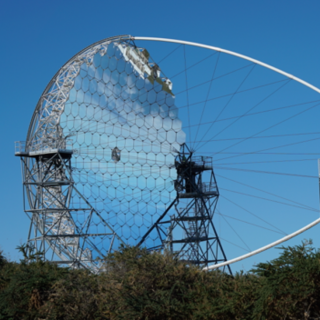Bibcode
Britzen, Silke; Krishna, Gopal; Kun, Emma; Olivares, Héctor; Pashchenko, Ilya; Jaron, Frédéric; Becerra González, Josefa; Paneque, David
Bibliographical reference
Universe
Advertised on:
2
2023
Citations
5
Refereed citations
4
Description
Mrk 501 is one of the most prominent TeV-emitting blazars and belongs to the class of high synchrotron peaked (HSP) blazars. The Doppler factors derived from the jet kinematics are much too low to provide sufficient beaming for the detected high-energy emission (the so-called Lorentz factor crisis). This BL Lac object is also a prime example of a misaligned AGN with an approximately 90∘ difference in orientation between the inner parsec-scale jet and the kpc-scale jet structure. We have performed a detailed analysis of the pc-scale jet kinematics, based on 23 years of VLBA observations (at 15 GHz) and find, in addition to robustly consolidating the already claimed stationary jet features and a hinted absence of component ejections, a significant drift of the outer nuclear jet. The two outermost jet features move with somewhat higher but still subluminal speeds. Albeit, they move orthogonally to the inner jet, which itself does not partake in the drifting motion. The effect of this intriguing kinematics is that the jet appears strongly curved at first (1995) but then appears to straighten out (2018). To our knowledge, this is the first time that the orthogonal swing of just the outer part of a nuclear jet has been observed. We discuss the possible physical nature of this turning maneuver. In addition, we report evidence for jet emission, which most likely originates in a spine–sheath structure.
Related projects

Particle Astrophysics
The members of the Particle Astrophysics Group of the IAC participate actively in three large international collaborations of high-energy astrophysics: AMS-02 (Alpha Magnetic Spectrometer), the Cherenkov radiation telescopes MAGIC I and II and the Cherenkov Telescope Array Observatory ( CTAO). We also participate in the ASTRI mini-array, the gamma
Mónica Luisa
Vázquez Acosta